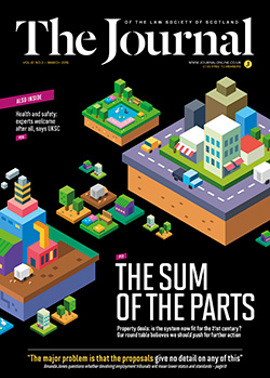Transgender: developing participation rules

In our last article looking at the question of hyperandrogenism in female athletics and the case of Dutee Chand (Journal, December 2015, 32), we scrutinised the four issues central to Chand’s successful appeal to the Court of Arbitration for Sport, leading to Chand being free to compete once more and the International Amateur Athletics Federation being directed to revisit its rules on hyperandrogenism. In a closely connected development (in subject matter), a medical commission of the International Olympic Committee has issued widely published recommendations relating to the participation of athletes in elite sport, applicable where those athletes are undergoing or have undergone gender change. The recommendations, if adopted, will bring significant changes for sports and a number of athletes at the elite level. However, what the changes mean for amateur sport, grassroots sport and age-grade sports will require significant thought.
Gender recognition legislation in UK
Transgender athletes have been permitted to participate in the Olympic Games since 2004. Central to IOC guidelines was the requirement that the athlete was legally recognised in their new gender. In Scotland, as in England & Wales, the Gender Recognition Act of 2004 applies such that people can seek to have their gender changed in law and forever be recognised as being of a different gender to that of their birth. Certain exclusions apply in relation to participation in sport, including that persons who have transitioned are not permitted to compete where there is either (a) a sporting imperative for fairness, or (b) by reason of safety. Otherwise, restricting participation or treating a person differently or to their detriment will give rise to problems and claims, including further to the Equality Act 2010. Typically, sports have taken their lead from the IOC’s position on this particular topic and have looked at various medical tests to ensure that athletes who have transitioned or are transitioning between genders (given the length of time that transitioning can take), are able to compete and that they do not contravene either the sporting imperative for fairness or safety.
IOC – rules for participation
Under the previous IOC guidelines, approved in 2003, athletes who transitioned from male to female or vice versa were required to have reassignment surgery followed by at least two years of hormone therapy in order to be eligible to compete. Now, the IOC medical commission is proposing that surgery will no longer be required, with female-to-male transgender athletes eligible to take part in men’s competitions “without restriction”. Separately, male-to-female transgender athletes will need to demonstrate that their testosterone level has been below a certain point for at least one year before their first competition.
This proposal has the appearance of radically simplifying matters, with assessment for participation being based on test results. Although the IOC has yet to adopt this medical guidance and introduce it to participation terms, and as such the IOC has neither mandated nor recommended that sports within the IOC follow this new thinking, evidently it may well be adopted for future IOC events, possibly even including the Olympics in Rio this summer. Should that happen, sports will be encouraged to follow suit. The likelihood is that individual sports will follow, with international federations cascading new similar eligibility requirements through their own sports. However, it may be thought unlikely that the guidance can be adopted wholesale across many different sports and at all different levels of competition and participation.
To start with, the guidance is much more suited to elite sport, given that it requires certain athletes to undergo rigorous testing that is time consuming and costly. How we could look to adopt the same into sport in Scotland, including across all levels, is challenging and will require very careful consideration.
Sports rules
The theoretical difficulty will ultimately rest in the different nature of sporting contests: what is appropriate for, say, hockey may not be appropriate for, say, tennis. A sport with multiple disciplines may even wish to adopt different rules for its disciplines, albeit typically where no question of safety arises from participation and competing, an issue of fairness may arise. In Scottish sport we have had a number of instances of transgender athletes seeking to participate at various levels and to use the facilities that are available within sport. Ensuring we have a playing field that is not only level but accessible by all, is always the goal.
While sports will necessarily differ in their approach to this issue, given that sporting competition and issues of health and safety, and fairness, are not mirrored across all sports, synergies and consistencies between sports will doubtless be developed for all in sport at all levels to embrace. Whether it would be appropriate to have different rules for different levels of participation, different rules for children as opposed to adults, and what support mechanisms may be available, for testing or from a scientific perspective, are difficult questions to answer.
In this issue
- Divorce in Scots law and Sharia law
- British Bill of Rights: radical reform or damp squib?
- Ten steps to winning new business
- The Keeper is coming
- Winding-up applications: when to refuse a first order
- Reading for pleasure
- Opinion: Marsha Scott
- Book reviews
- Profile: Susan Carter
- President's column
- Securities: no more sasine
- People on the move
- Back for more
- Funding your practice
- Equal but different?
- Making safety work
- A mediation story: the mediator's log
- Uber and above?
- Experts reassessed
- Land reform: part 10 takes shape
- Out of shape
- Requirement to register: meet PSC and SIOC
- Transgender: developing participation rules
- Scottish Solicitors Discipline Tribunal
- The road less travelled
- From the Brussels office
- Law reform roundup
- Doing the business
- EU benefit rights: a not so new deal?
- Fraud: raising your game
- Ask Ash
- In the rights place
- Using your secure digital signature
- Come to the conference






